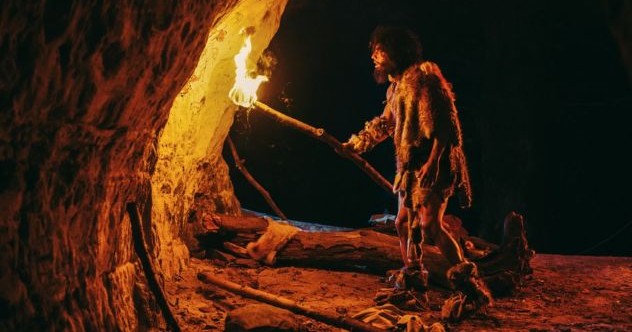Now Reading: Unveiling 10 Ancient Neanderthal Secrets
-
01
Unveiling 10 Ancient Neanderthal Secrets
Unveiling 10 Ancient Neanderthal Secrets

Fast Summary
- Neanderthals & Bed Bugs: Scientists estimate bed bugs spread from bats to Neanderthals 60,000 years ago, marking them as the first human pests.
- Fingerprint & Artwork: A 43,000-year-old Neanderthal fingerprint in Spain suggests symbolic thought and artistic creation by dipping fingers into red pigment.
- Ancient Cooking: Burnt leftovers discovered in Iraq indicate Neanderthals prepared complex meals over 70,000 years ago using pulses and seeds for recipes resembling flatbread.
- Compassion for Disabled Individuals: Fossils of a Down’s syndrome child found in Spain imply caregiving among Neanderthals extended beyond parents to groups, showcasing altruistic behavior.
- Seafood Diet in Portugal: Evidence from a cave reveals Neanderthals consumed seafood like mussels and crabs as half their diet around 90,000 years ago.
- Oldest Human Viruses Found: Pathogens including adenovirus and herpesvirus were extracted from two male skeletons dating back 50,000 years in Russian caves.
- Elephant Hunts for Nutrition: Cut marks on ancient straight-tusked elephant bones suggest group hunting by Neanderthals who preserved meat for sustenance across Germany over 125,000 years ago.
- Magnetic Pole Reversal theory: Researchers hypothesize flipping magnetic poles weakened Earth’s protection against radiation approximately 42,000 years ago-possibly contributing to climatic shifts affecting the extinction of Neanderthals.
- Hibernation Adaptations? fossil evidence suggests seasonal bone disruption linked to hibernation-like behaviors during harsh winters over hundreds of thousands of years in northern spain.
- Siberian Cave cohabitation & Breeding: fossils from Denisova Cave show cohabitation between Denisovans (200K-50K years), Neanderthals (190K-100K), with evidence of hybrid offspring.
Indian Opinion Analysis
The discoveries about the highly complex lifestyle and adaptive intelligence of ancient hominid groups such as the Neanderthals offer broader insights into human evolution overall-both biologically and socially. The findings challenge prevailing assumptions about early humans being primitive or lacking complexity. Features like compassion toward disabled individuals or culinary ingenuity suggest intricate social structures that mirror fundamental pillars within contemporary societies.
For India’s perspective on anthropology research priorities-for exmaple-the rich fossil record underscores how studying prehistoric societies can illuminate aspects vital for modern understanding around community interdependence or resilience against environmental challenges such as climate change (as seen with magnetic pole shifts). Also notable is how viral evolution parallels transformative insights that researchers are tracking worldwide-including ongoing genetic studies relevant for public health frameworks globally.
Read more here
























